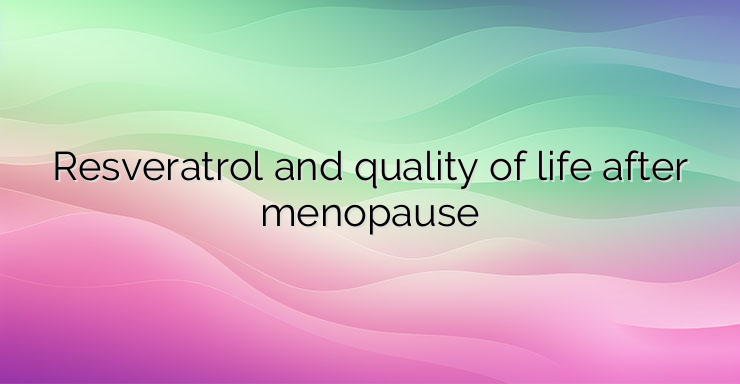Resveratrol is particularly beneficial for women’s health, especially in the post-menopausal period, explained Dr Rachel Wong and Prof Peter Howe from the University of Newcastle, Australia. This discovery was made after conducting the RESHAW study. RESHAW is a clinical trial funded by the Australian National Health and Medical Research Council to investigate the effect of resveratrol supplementation, particularly on intellectual ability. The effect on body mass, mental balance, physical activity and pain was also analyzed. The beneficial properties of resveratrol after menopause The study was conducted over two years with the participation of 125 postmenopausal women who took a dose of 75 mg of resveratrol, twice a day. The interim results from RESHAW clearly show that resveratrol helps improve quality of life in postmenopausal women in several ways. Improved mental capacity and ability to concentrate; Improving mood; Pain reduction; Improvement of cerebral circulation; Improving the functions of neurons; Improving blood circulation and reducing the stiffness of blood vessels, which also reduces the risk of stroke and heart attack; Reduction of menopausal symptoms and sleep disorders; Improving bone density; Reducing the risk of bone fractures; Promoting healthy blood sugar levels and improving insulin sensitivity. Taking a resveratrol supplement may reduce chronic pain in age-related osteoarthritis and improve menopause-related quality of life in postmenopausal women. Pain reduction is 18%. The researchers emphasize that the results go beyond the pain reduction findings. Within the same study, a reduction in vasomotor symptoms – hot flashes and night sweats, as well as other somatic symptoms – heart discomfort, sleep problems, muscle and joint discomfort, was found when taking a resveratrol supplement. Resveratrol – a valuable plant antioxidant In more than 170 clinical studies, resveratrol has shown its benefits as an antioxidant and has been found to be one of the natural activators of the protein SIRT1, which controls the cell cycle and determines cell longevity. Resveratrol has also been shown to have a phytoestrogenic effect – acting in a manner similar to female sex hormones, regulating hormonal imbalances that can occur at any time in a woman’s life. Foods containing resveratrol The study examined the effects of doses of resveratrol that could only be achieved by taking supplements. In food, resveratrol is contained in small doses, which can still have a positive effect on health. The following foods have the highest content of resveratrol: Red wine and red grapes; Peanuts; Natural cocoa; Blueberries; Raspberries Sources: https://www.cuerpomente.com/salud-natural/tratamientos/resveratrol-menopausia_7417 https://journals.lww.com/menopausejournal/Citation/2021/01000/Long_term_resveratrol_supplementation_improves.9.aspx


Leave a Reply